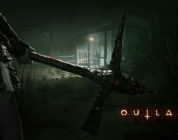Since the first Watch Dogs launched back in 2014, the Watch Dogs series has been one of the series with the most personality in Ubisoft’s library. The first title took us to a futuristic Chicago, established an interesting setting that the hype could do with regard to its visuals and certain problems with its tone. Watch Dogs 2, in the heart of San Francisco, delved into what worked in the first title and managed to expose a speech and a rogue, characteristic and differentiated tone. Now comes Watch Dogs Legion, which it rebuilds on the basis of the previous ones, taking us to a futuristic post- Brexit London but with an interesting twist! In Legion, there is not a single protagonist, but rather the revolution in the face of the militarized police forces, the constant governmental and corporate surveillance, and ultimately, in the face of fascism, comes from the people; DedSec’s ranks are filled with every Londoner we can recruit at any time. It is an ambitious and interesting sequel, without further due let’s dive in.
A London trapped in chaos and fascism
Predictably, Legion follows the footsteps of the previous titles of the series, we have an open world action and stealth adventure, that Ubisoft has accustomed us to in the last decade. The main story is supported by a good number of secondary missions and a map full of activities, icons to clean. The central plot takes us to a London plunged into chaos. The Albion military company has taken control of security in the British city, a technology corporation knows everything citizens do by using an implanted chips that replace today’s mobile phones, the Kelly clan mobsters enslave the most vulnerable to the blind eye of powerless police and a dysfunctional government; And in the midst of all this, DedSec, the revolutionary hacker organization, is seen to be cracked and deemed terrorists behind a plot by another mysterious organization called the Zero Day.
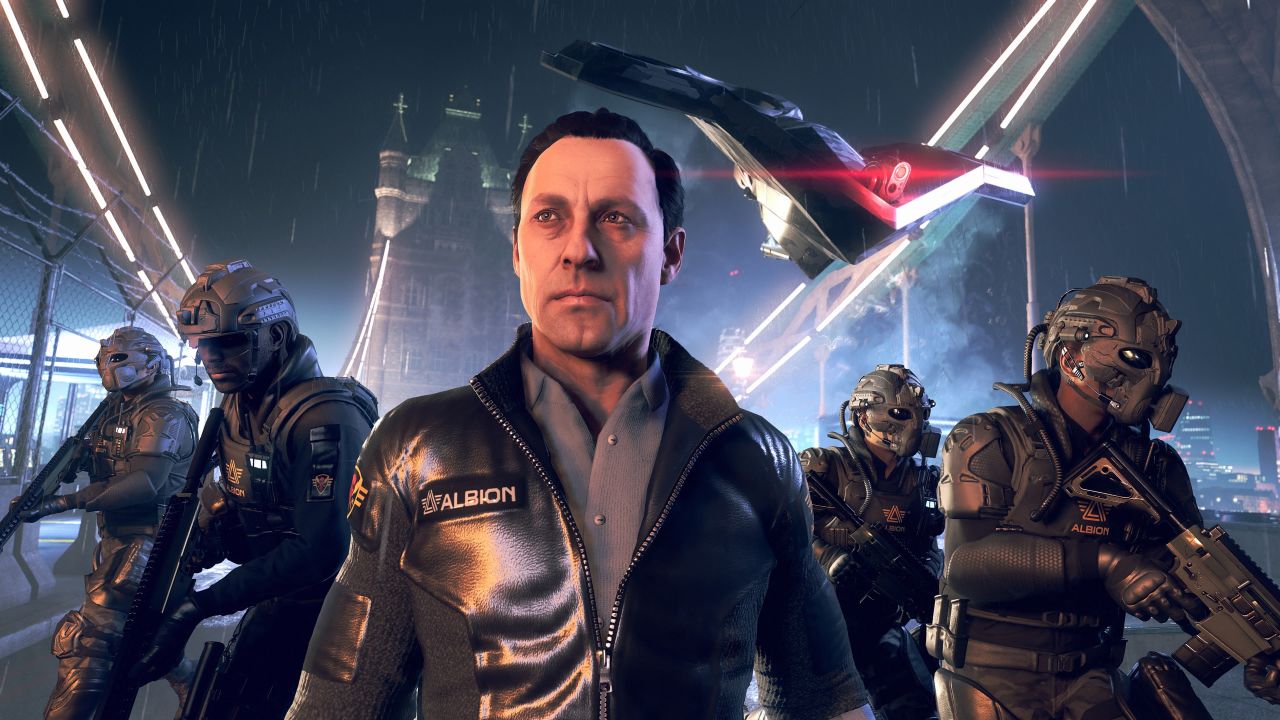 The London created by Ubisoft Toronto is divided into districts where the influence of those ruling each district is noticeable, with whom we will have to end to bring freedom back; It is not a scale interpretation of the city, but a generous interpretation (by size) of the city with the most iconic places represented. The main story has a nice depth and takes around 25 hours and that’s even after with many secondary missions and other activities left to do, yet there is nothing revolutionary the game took all the good from the previous game in terms of play mechanics. In terms of story, there are some very interesting moments, especially in the final quarter, but in general, it is a cluster of topics. The most interesting story is told on the streets of the city.
The London created by Ubisoft Toronto is divided into districts where the influence of those ruling each district is noticeable, with whom we will have to end to bring freedom back; It is not a scale interpretation of the city, but a generous interpretation (by size) of the city with the most iconic places represented. The main story has a nice depth and takes around 25 hours and that’s even after with many secondary missions and other activities left to do, yet there is nothing revolutionary the game took all the good from the previous game in terms of play mechanics. In terms of story, there are some very interesting moments, especially in the final quarter, but in general, it is a cluster of topics. The most interesting story is told on the streets of the city.
 We are facing a London full of autonomous cars, armed drones that monitor and spread propaganda, squares with huge screens where government television ceaselessly shows its lies, streets barely lit by neon where beggars try to survive, police checkpoints in every corner with soldiers who do not hesitate to beat up those who look at them badly, continuous protests calmed down with violence, immigrant shelters persecuted for the simple fact of being from another country where one, two, or three disappear every day. The interesting speech of Watch Dogs Legion is not in its script, but in the situations that we see in the city and in the gameplay itself.
We are facing a London full of autonomous cars, armed drones that monitor and spread propaganda, squares with huge screens where government television ceaselessly shows its lies, streets barely lit by neon where beggars try to survive, police checkpoints in every corner with soldiers who do not hesitate to beat up those who look at them badly, continuous protests calmed down with violence, immigrant shelters persecuted for the simple fact of being from another country where one, two, or three disappear every day. The interesting speech of Watch Dogs Legion is not in its script, but in the situations that we see in the city and in the gameplay itself.
Who is the ultimate enemy?
The fact that there is not a single bad guy and the story is that the problems of the world are not fixed overnight just because a single citizen decides to conspire against power, or because a small organization of somewhat crazy hackers decides to fight it. Everyone can contribute their bit to improve the world. In Legion we can recruit practically anyone we seethrough the streets of the city; there will be some who are against DedSec, but most will want to join in after helping them with some task.
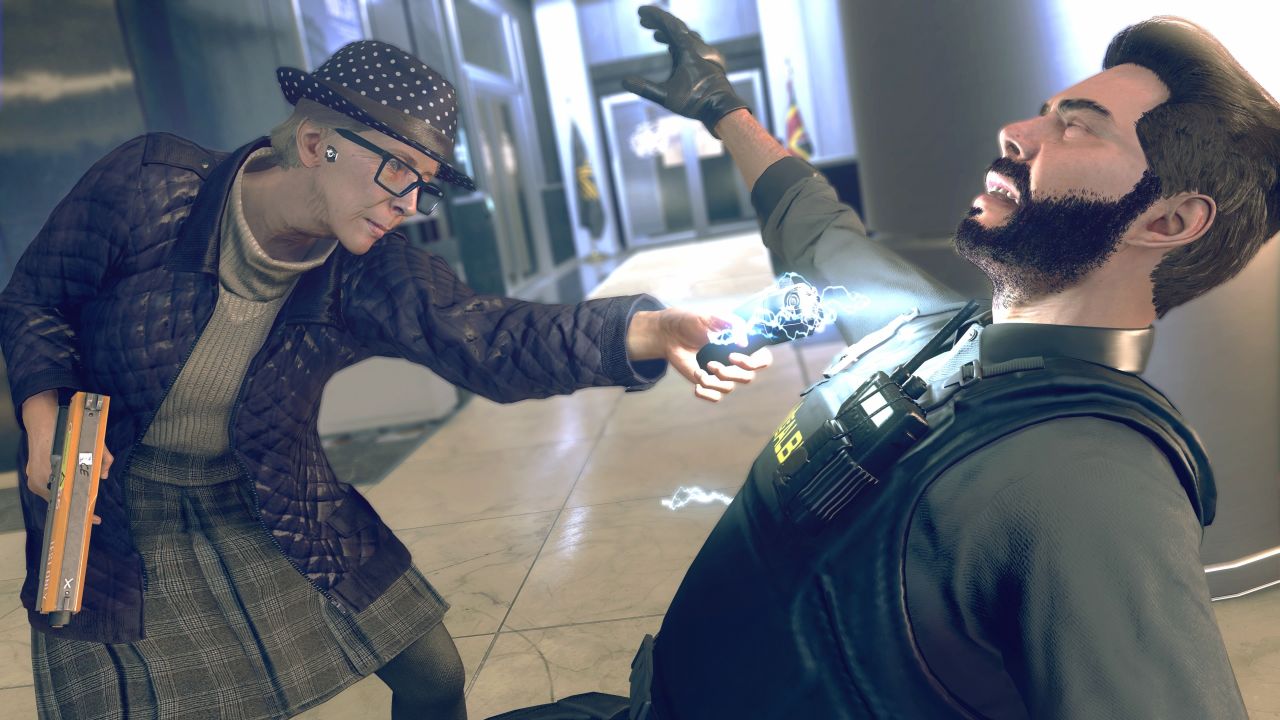 This means that we will be able to create a revolutionary army made up of ex-military veterans, former MI-6 spies, homeless, waiters, tailors, dentists, cooks, tellers or old women who have lost their jobs after being replaced. by artificial intelligence. Each of them has its advantages and disadvantages. For example, a military man can sneak into places controlled by Albion without problems, as long as he does not pass very close to his companions; a bartender takes less damage for being used to hangovers, a magician can hypnotize adversaries; a worker can call a construction drone on which we can ride at any time, and having a medic in our ranks allows fallen allies to recover faster. Increasing the ranks of our resistance not only brings variety in the way we can approach different situations. Legion can be played in two modes: one in which injured or detained DedSec members return duty again after a while, or whoever dies during a mission is gone for good and won’t be coming back(just as in real life).
This means that we will be able to create a revolutionary army made up of ex-military veterans, former MI-6 spies, homeless, waiters, tailors, dentists, cooks, tellers or old women who have lost their jobs after being replaced. by artificial intelligence. Each of them has its advantages and disadvantages. For example, a military man can sneak into places controlled by Albion without problems, as long as he does not pass very close to his companions; a bartender takes less damage for being used to hangovers, a magician can hypnotize adversaries; a worker can call a construction drone on which we can ride at any time, and having a medic in our ranks allows fallen allies to recover faster. Increasing the ranks of our resistance not only brings variety in the way we can approach different situations. Legion can be played in two modes: one in which injured or detained DedSec members return duty again after a while, or whoever dies during a mission is gone for good and won’t be coming back(just as in real life).
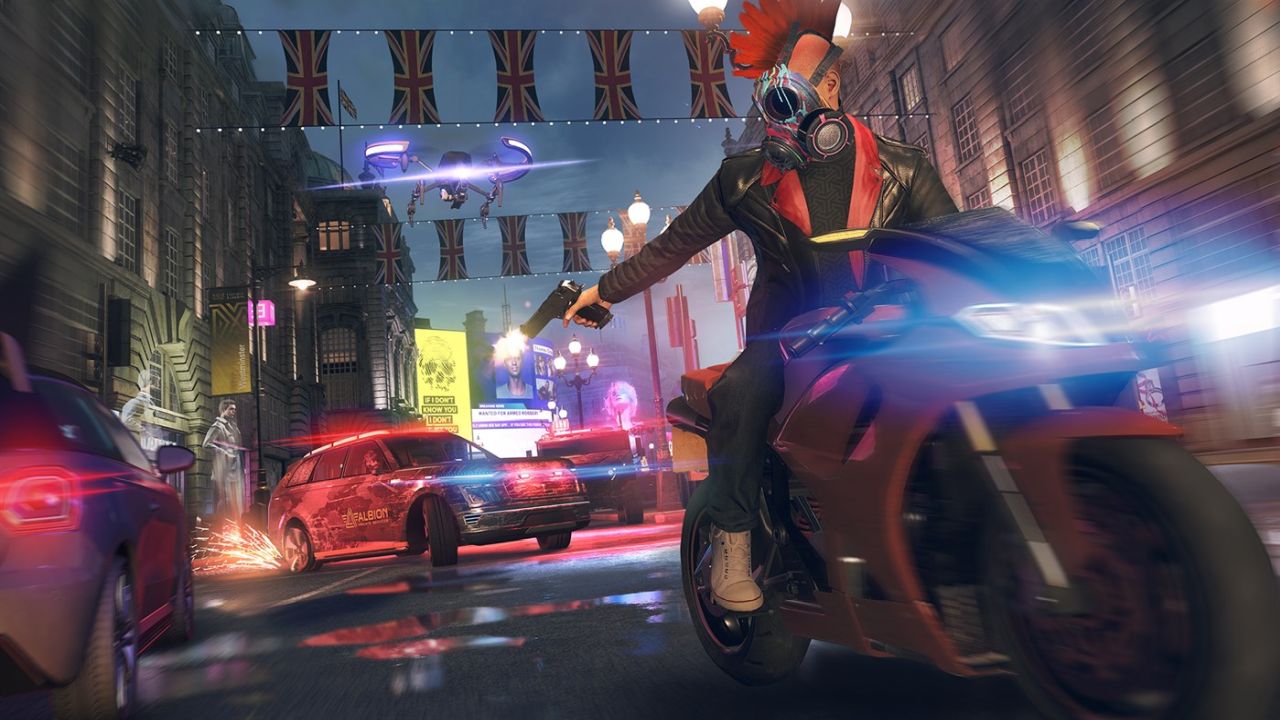 The system is original, it works and it is the backbone of the ideas that the game wants to convey, but it is true that it is not perfect. Some recruits are much more useful than others: for example, infiltrating a military base using your homeless member wouldn’t make sense. Also, the recruitment missions are very similar to each other which feels repetitive after a while, in addition when you want to change from one agent to another a loading screen appears for several seconds(something that may not be present in next-gen consoles hopefully. All recruits share the same upgrades that we buy with the points we collect by successfully completing missions and around the map. These perks are things like being able to hack riot drones or take less damage from Albion soldiers, also include equipment unlocks (non-fatal shotguns or CQC attacks to incapacitate) you can equip all of them.
The system is original, it works and it is the backbone of the ideas that the game wants to convey, but it is true that it is not perfect. Some recruits are much more useful than others: for example, infiltrating a military base using your homeless member wouldn’t make sense. Also, the recruitment missions are very similar to each other which feels repetitive after a while, in addition when you want to change from one agent to another a loading screen appears for several seconds(something that may not be present in next-gen consoles hopefully. All recruits share the same upgrades that we buy with the points we collect by successfully completing missions and around the map. These perks are things like being able to hack riot drones or take less damage from Albion soldiers, also include equipment unlocks (non-fatal shotguns or CQC attacks to incapacitate) you can equip all of them.
A city where all can be hacked
The variety in each mission is simply an amazing experience and our agent’s background also plays a big role in how we approach. Rule of thumb, stealth always wins, trying to go unnoticed by infiltrating stealthily or through other methods in locations full of soldiers and drones; in fact, both ranged and melee combat are simply against the nature of this title. It’s pure fun to go hacking the security cameras of a building to get the code that allows us to access the central server, or sneak in with our spider bot in the vents while we finish off all the security guards blocking our way, or hack their own armed drones to clear a location before entering.
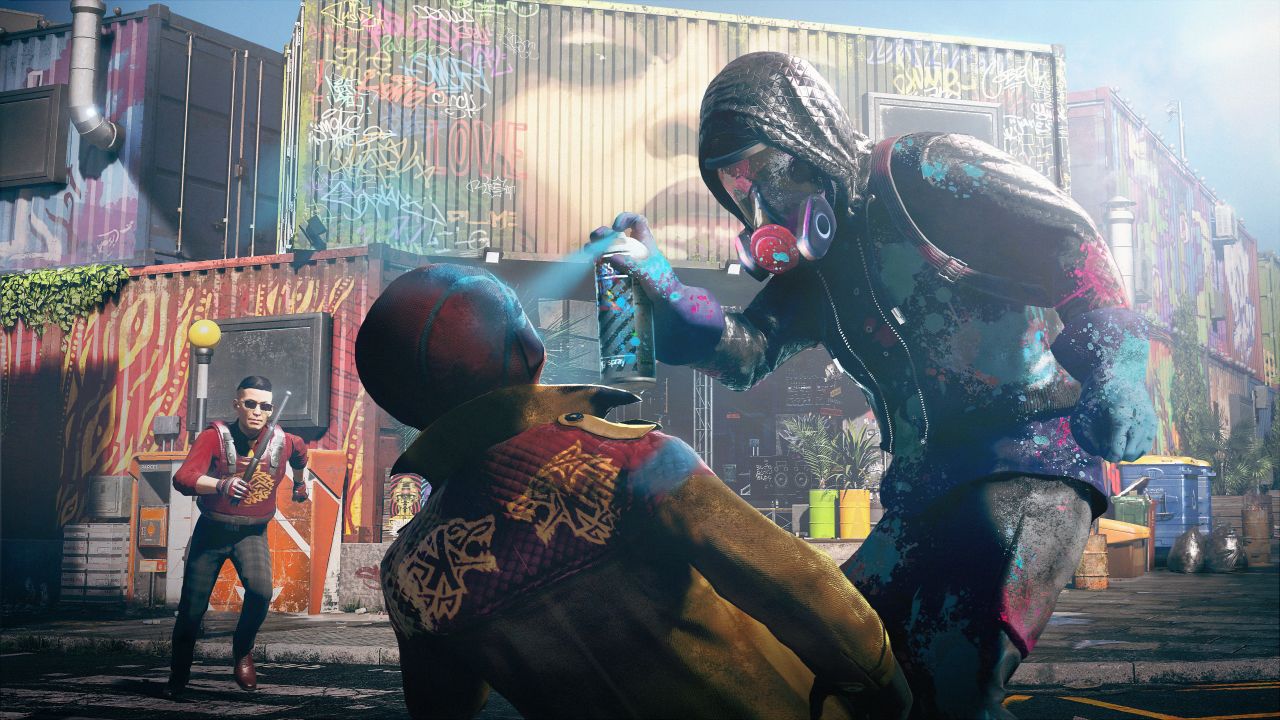 As we mentioned earlier that the mission design is a bit repetitive except for specific moments in the main story, and it presents each situation as a puzzle. You need to observe the different pieces through security cameras, drones or the robot spider: these pieces are the possible routes to the target, the paths taken by the security guards and the different traps that we can activate. Afterwards, we decide how to approach the situation, because since most objectives do not require our physical presence, we will have to think if it is better to enter ourselves hiding, get a construction drone to fly over the building and enter from the top (usually with less security), or complete the level moving through the conduits of the stages with the spider drone in moments that almost seem like a platform game.
As we mentioned earlier that the mission design is a bit repetitive except for specific moments in the main story, and it presents each situation as a puzzle. You need to observe the different pieces through security cameras, drones or the robot spider: these pieces are the possible routes to the target, the paths taken by the security guards and the different traps that we can activate. Afterwards, we decide how to approach the situation, because since most objectives do not require our physical presence, we will have to think if it is better to enter ourselves hiding, get a construction drone to fly over the building and enter from the top (usually with less security), or complete the level moving through the conduits of the stages with the spider drone in moments that almost seem like a platform game.
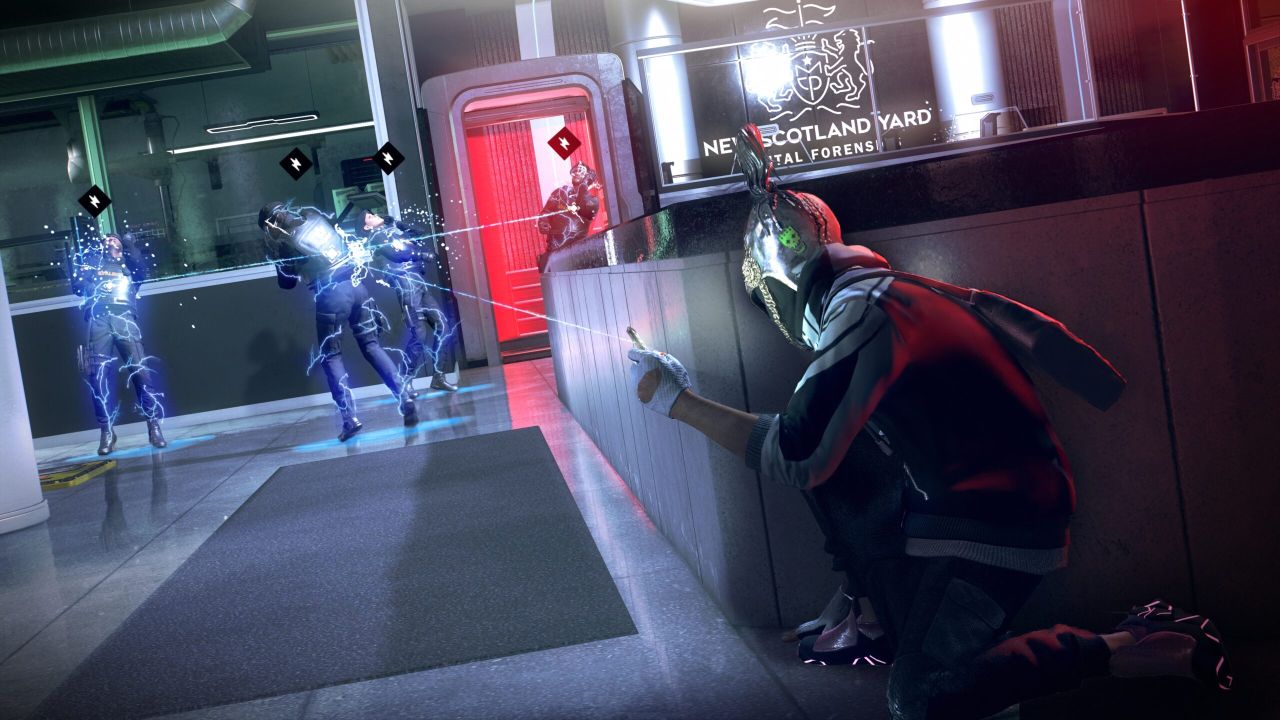 DedSec aims for the citizens from the different districts to fight against the military and technological control of Albion and company and to encourage them we can hack the screens to show revolutionary messages, paint graffiti in specific areas, destroy servers and more. Although we see the dots on the minimap, once we arrive at the place we will have to study the scene to identify the access routes. An example: to put DedSec propaganda on a huge screen in central London we had to hack the security cameras on the street, going from one to another, until we reached the top of the building where the screen is. There we start controlling a spider drone and moving around the terrace to identify a construction drone platform. By hacking into one of those drones, we were able to get the boxes blocking a ventilation grill out of our way; again, we controlled the spider and with it, we hacked access to the screen’s server. Other situations pose the typical pipe puzzles(here electricity or data conduits) that we have seen in hundreds of games, but with an interesting three-dimensional layer, since the puzzle may be surrounding a building and it will be necessary to control a drone or the nearby cameras to solve it.
DedSec aims for the citizens from the different districts to fight against the military and technological control of Albion and company and to encourage them we can hack the screens to show revolutionary messages, paint graffiti in specific areas, destroy servers and more. Although we see the dots on the minimap, once we arrive at the place we will have to study the scene to identify the access routes. An example: to put DedSec propaganda on a huge screen in central London we had to hack the security cameras on the street, going from one to another, until we reached the top of the building where the screen is. There we start controlling a spider drone and moving around the terrace to identify a construction drone platform. By hacking into one of those drones, we were able to get the boxes blocking a ventilation grill out of our way; again, we controlled the spider and with it, we hacked access to the screen’s server. Other situations pose the typical pipe puzzles(here electricity or data conduits) that we have seen in hundreds of games, but with an interesting three-dimensional layer, since the puzzle may be surrounding a building and it will be necessary to control a drone or the nearby cameras to solve it.
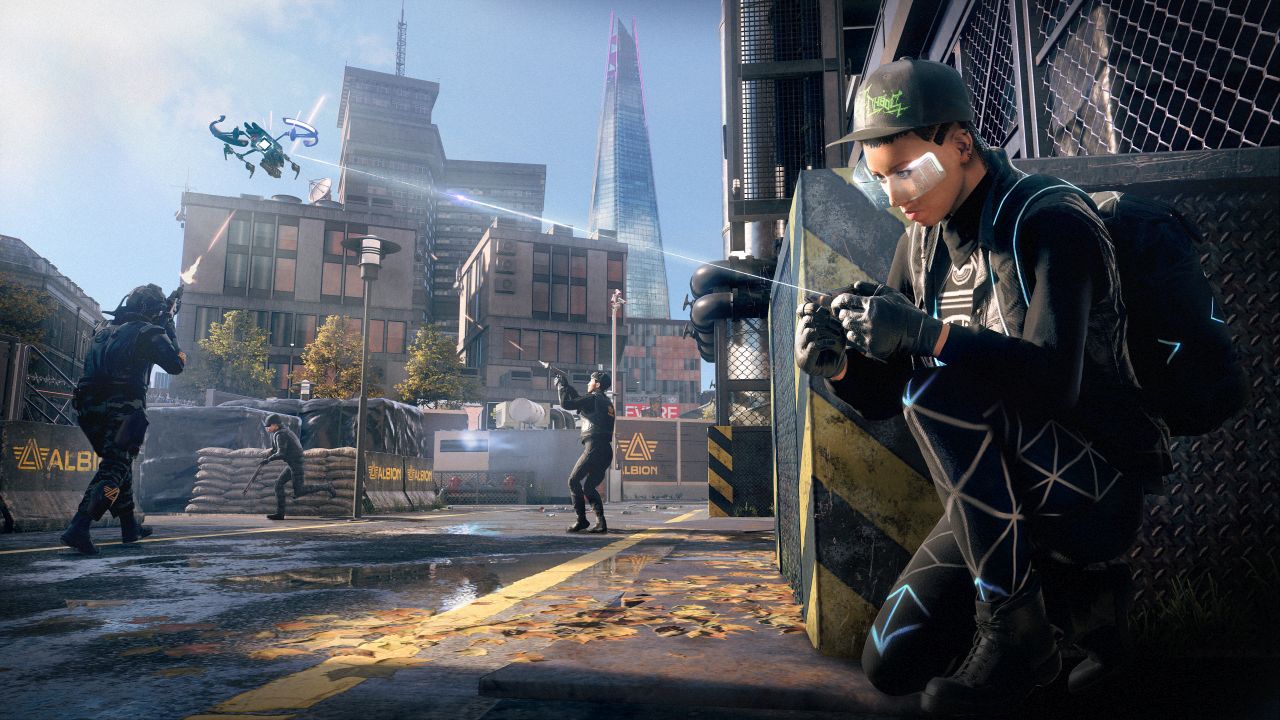 All this as a whole makes that, despite the fact that the world design and the way of structuring the experience are very similar to the rest of Ubisoft’s open-world games (and that of most developers), it feels playable and different. Sexy enough at the controls that it caught us so that we couldn’t stop playing until we saw the credits. Not only that, but we also want to go back to get all the improvement points, to do the secondary missions that we have left, to recruit more agents and to obtain more text and audio documents. Especially the latter. Ever since Watch Dogs Legion was shown the worry was that it would turn out as something superficial; After all, we are talking about a company that says it does not make games with a political message despite having a catalogue full of militaristic titles. But they have surprised us. It is true that the main plot, as in the previous installment, maybe naive and simplistic: there are the really bad guys and we, the revolutionaries, are going to put an end to them; and that’s not bad per se. However, with the situations that we see in London, with the text documents that we read, with the podcasts that we listen to the devices we find or in the radio inside the cars (by the way, driving needs a review for the next installment) and with the stories we know when recruiting agents and doing side missions, a concrete, interesting and where clear parallels are drawn with the current international political and economic situation.
All this as a whole makes that, despite the fact that the world design and the way of structuring the experience are very similar to the rest of Ubisoft’s open-world games (and that of most developers), it feels playable and different. Sexy enough at the controls that it caught us so that we couldn’t stop playing until we saw the credits. Not only that, but we also want to go back to get all the improvement points, to do the secondary missions that we have left, to recruit more agents and to obtain more text and audio documents. Especially the latter. Ever since Watch Dogs Legion was shown the worry was that it would turn out as something superficial; After all, we are talking about a company that says it does not make games with a political message despite having a catalogue full of militaristic titles. But they have surprised us. It is true that the main plot, as in the previous installment, maybe naive and simplistic: there are the really bad guys and we, the revolutionaries, are going to put an end to them; and that’s not bad per se. However, with the situations that we see in London, with the text documents that we read, with the podcasts that we listen to the devices we find or in the radio inside the cars (by the way, driving needs a review for the next installment) and with the stories we know when recruiting agents and doing side missions, a concrete, interesting and where clear parallels are drawn with the current international political and economic situation.
Audiovisuals
The other reason we couldn’t stop playing until we finished is the beautiful city of London. The work that Ubisoft Toronto has done both artistically and graphically is spectacular. The city is alive, either on the ground with all those autonomous cars, pedestrians and the military doing raids and arresting pedestrians; or in the sky, with drones flying over the streets. The design of the characters is varied and in certain cases loaded with personality, there is enough distinction of vehicles and districts of the city is stunning, the lighting and the attention to detail.
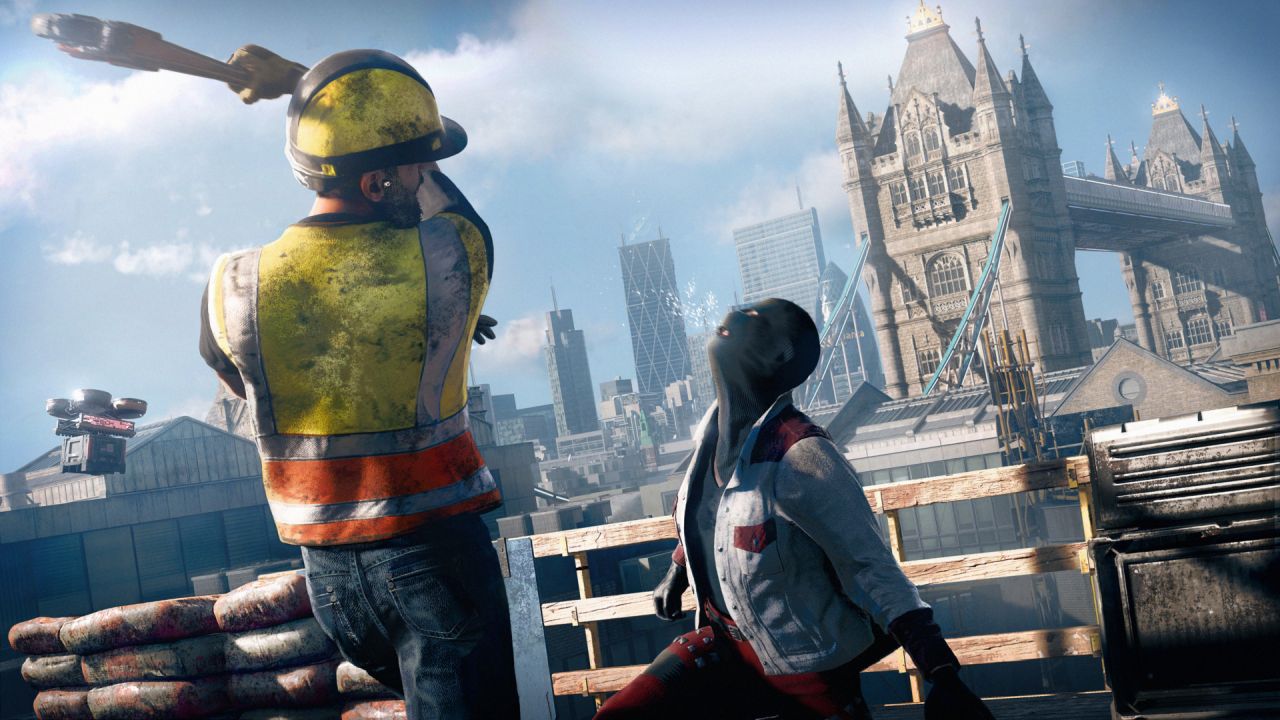 Legion is technically surprising for an open-world game. The detail of the characters and their animations are not at the level of some blockbusters that we have seen this year, but the lighting in the day-night cycle, the shadows, the reflections … It is a game that is much more picturesque at night than during the day. In addition, with ray tracing (which will also be on PS5 and Xbox Series X / S), everything gains more reflections like in a building where almost everything is reflective from glass to ceramic. As for the sound, it will delight punk and alternative music fans songs and artists such as Foals, Alt-J, Bring Me the Horizon, Blur, Gorillaz, The Libertines, by MUSE… Developers successfully embroidered the ambient sound because it is really immersive to be driving through the streets of London while we listen to the propaganda drones, the protesters singing their proclamations, the military detaining passers-by without reason, the diegetic music, the podcasts that can be heard through the speakers.
Legion is technically surprising for an open-world game. The detail of the characters and their animations are not at the level of some blockbusters that we have seen this year, but the lighting in the day-night cycle, the shadows, the reflections … It is a game that is much more picturesque at night than during the day. In addition, with ray tracing (which will also be on PS5 and Xbox Series X / S), everything gains more reflections like in a building where almost everything is reflective from glass to ceramic. As for the sound, it will delight punk and alternative music fans songs and artists such as Foals, Alt-J, Bring Me the Horizon, Blur, Gorillaz, The Libertines, by MUSE… Developers successfully embroidered the ambient sound because it is really immersive to be driving through the streets of London while we listen to the propaganda drones, the protesters singing their proclamations, the military detaining passers-by without reason, the diegetic music, the podcasts that can be heard through the speakers.
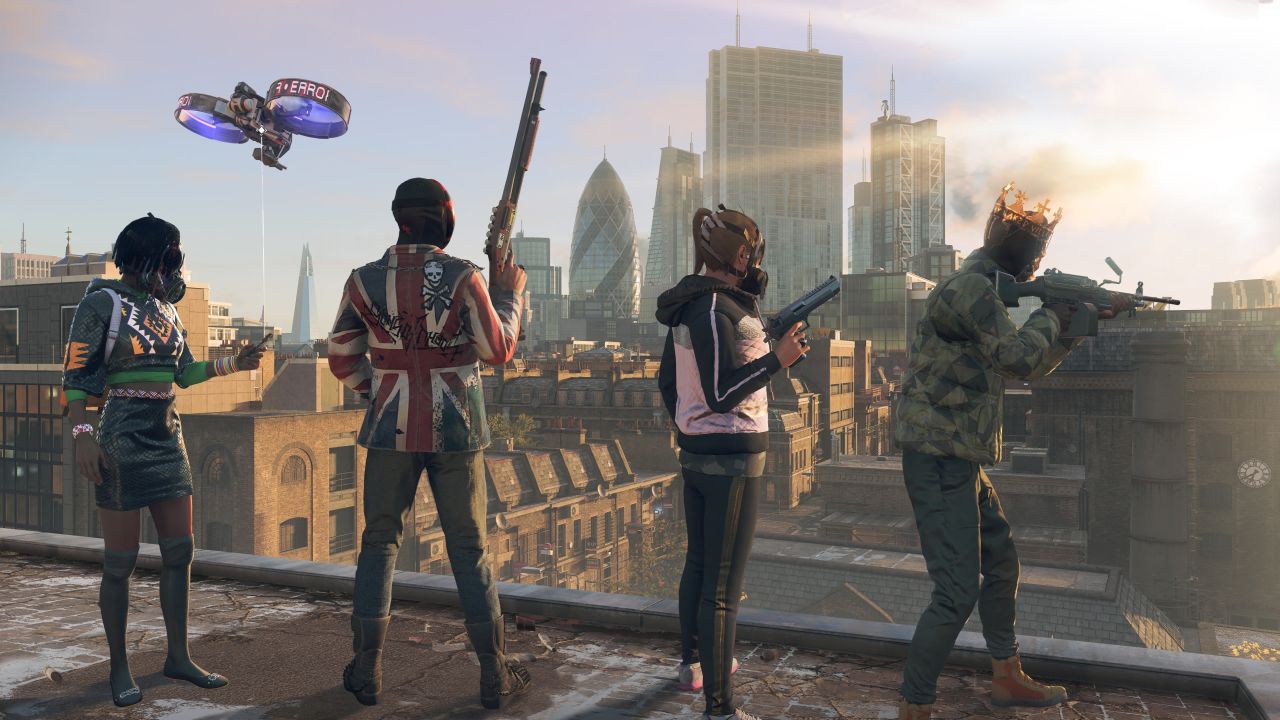 Comes December 3 they will be bringing the online cooperative mode that will allow us to explore the city with three friends, dynamic events, competitive modes, new characters, additional missions, New Game +.
Comes December 3 they will be bringing the online cooperative mode that will allow us to explore the city with three friends, dynamic events, competitive modes, new characters, additional missions, New Game +.
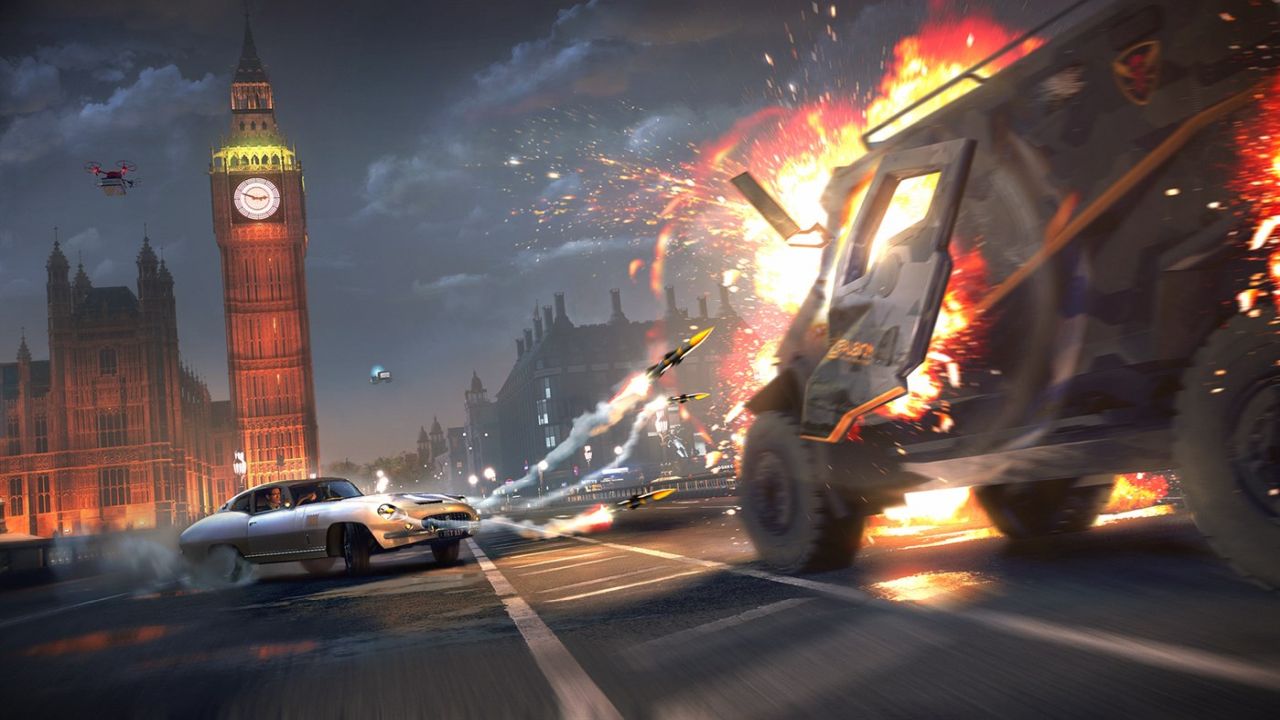 Final Thoughts
Final Thoughts
Watch Dogs Legion is the best game in the series and a step up from Ubisoft in distinguishing it from its many similar open-world propositions. It is a game with a message and a focused and interesting tone, with a plot attractive enough to keep you playing to the end and with a variety of side missions and activities, proposing different ways to approach each mission, you will keep coming until you cleaned all the icons on a map. The future of London visually and in sound level is incredible. Definitely, a must-buy title whether you played the previous titles or totally new to the series!
We prepared this review with a digital review code for the PS4 Pro version of the game provided by Ubisoft


